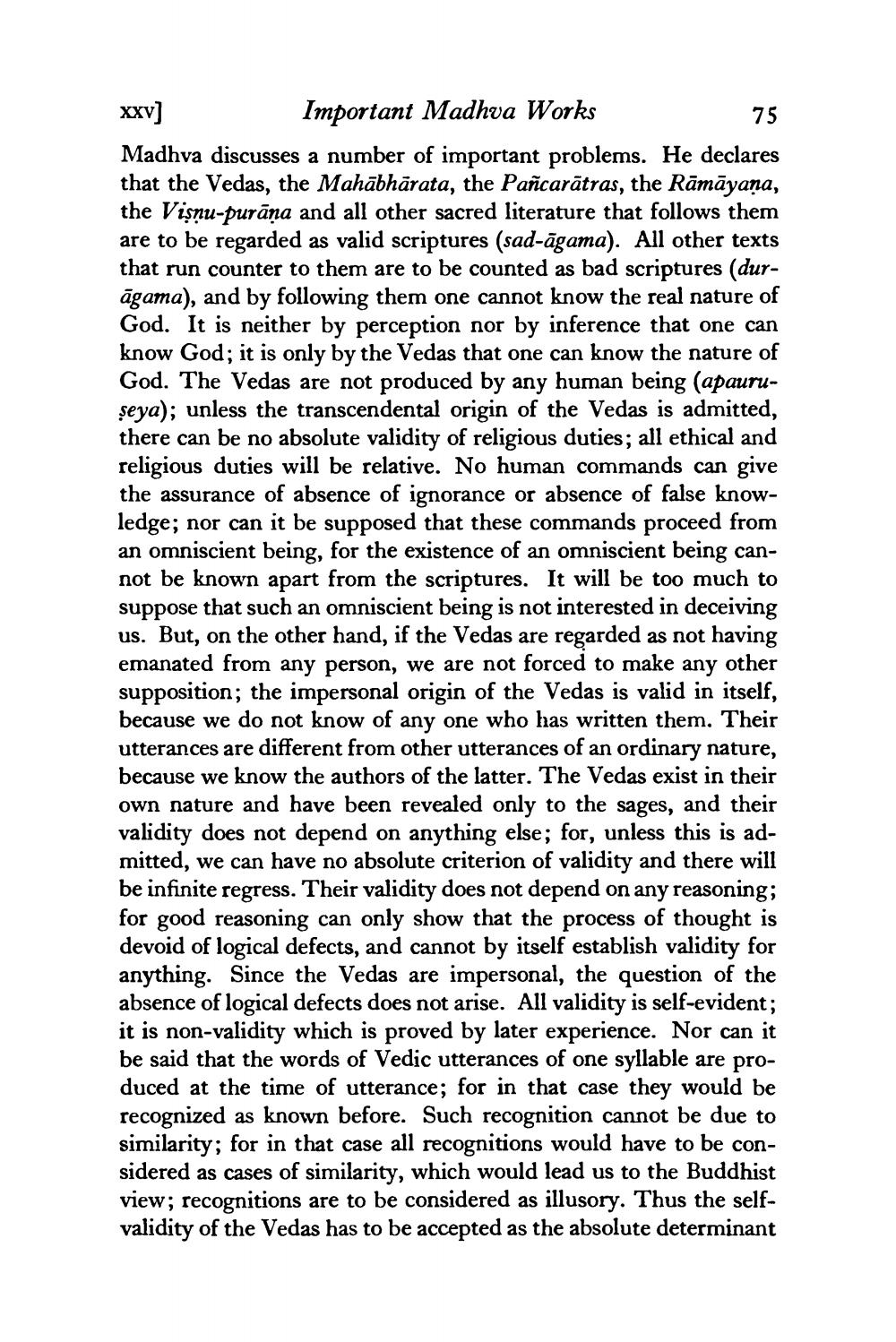________________
Xxv) Important Madhva Works
75 Madhva discusses a number of important problems. He declares that the Vedas, the Mahābhārata, the Pañcarātras, the Rāmāyana, the Vişnu-purāna and all other sacred literature that follows them are to be regarded as valid scriptures (sad-āgama). All other texts that run counter to them are to be counted as bad scriptures (durāgama), and by following them one cannot know the real nature of God. It is neither by perception nor by inference that one can know God; it is only by the Vedas that one can know the nature of God. The Vedas are not produced by any human being (apauruşeya); unless the transcendental origin of the Vedas is admitted, there can be no absolute validity of religious duties; all ethical and religious duties will be relative. No human commands can give the assurance of absence of ignorance or absence of false knowledge; nor can it be supposed that these commands proceed from an omniscient being, for the existence of an omniscient being cannot be known apart from the scriptures. It will be too much to suppose that such an omniscient being is not interested in deceiving us. But, on the other hand, if the Vedas are regarded as not having emanated from any person, we are not forced to make any other supposition; the impersonal origin of the Vedas is valid in itself, because we do not know of any one who has written them. Their utterances are different from other utterances of an ordinary nature, because we know the authors of the latter. The Vedas exist in their own nature and have been revealed only to the sages, and their validity does not depend on anything else; for, unless this is admitted, we can have no absolute criterion of validity and there will be infinite regress. Their validity does not depend on any reasoning; for good reasoning can only show that the process of thought is devoid of logical defects, and cannot by itself establish validity for anything. Since the Vedas are impersonal, the question of the absence of logical defects does not arise. All validity is self-evident; it is non-validity which is proved by later experience. Nor can it be said that the words of Vedic utterances of one syllable are produced at the time of utterance; for in that case they would be recognized as known before. Such recognition cannot be due to similarity; for in that case all recognitions would have to be considered as cases of similarity, which would lead us to the Buddhist view; recognitions are to be considered as illusory. Thus the selfvalidity of the Vedas has to be accepted as the absolute determinant




